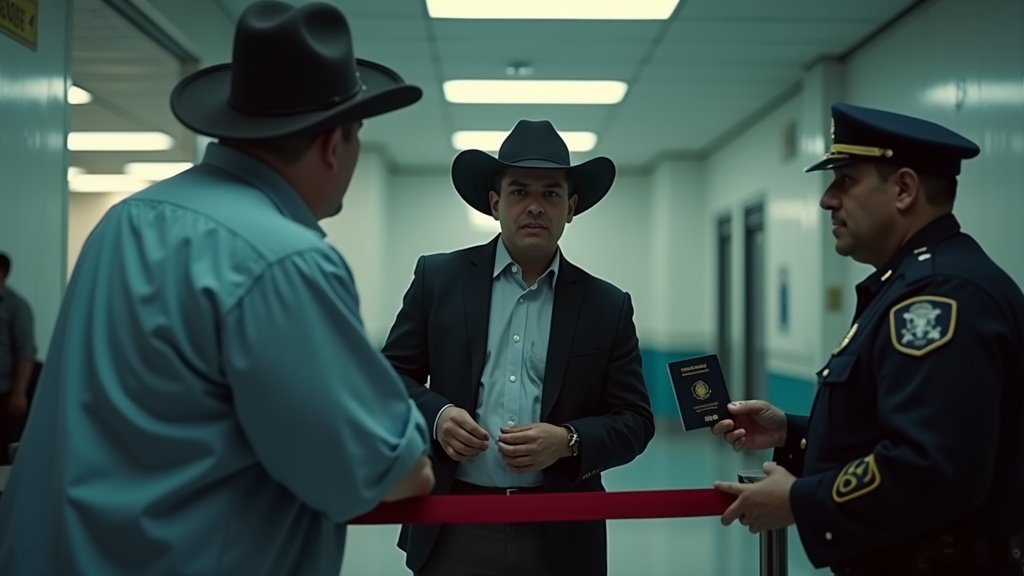Latin Music’s Economic Boom Threatened by Rising Visa Issues and Immigration Crackdowns
The vibrant and rapidly expanding Latin music industry, a powerhouse that generated nearly $1.5 billion in revenue in 2024, is facing significant headwinds due to increasingly complex visa issues and heightened immigration enforcement. Top artists, major festivals, and the economic ecosystems they support are being directly impacted, raising concerns about cultural exchange and the industry’s future growth.
A Booming Industry Facing New Obstacles
Latin music has solidified its position as a major force in the global music landscape. In 2024, the genre’s recorded music revenues in the U.S. reached an all-time record of approximately $1.42 billion, marking the third consecutive year surpassing the $1 billion threshold. This growth has consistently outpaced the broader U.S. music market, with streaming services, both paid and ad-supported, driving the lion’s share of revenue. Regional Mexican music, in particular, has emerged as a dominant subgenre, fueling much of this expansion. However, this economic success is now under threat.
Artists Caught in the Visa Squeeze
Several prominent Latin music artists, including Mexican stars Julión Álvarez and Peso Pluma, have recently encountered significant visa difficulties. Reports indicate that visas have been revoked, denied, or placed under administrative review, preventing them from entering the United States for scheduled performances and tours. For instance, Julión Álvarez had a sold-out concert at AT&T Stadium in Arlington, Texas, postponed after his visa was allegedly revoked with no official explanation. Peso Pluma, who garnered immense popularity and was even the most-streamed artist on YouTube in 2023, has also faced visa complications. Other artists like Grupo Firme and Los Alegres del Barranco have had performances canceled due to similar visa issues, with their visas placed under administrative review or revoked. Natanael Cano is another notable artist whose visa faced scrutiny and revocation due to alleged fraudulent acquisition.
These visa revocations are reportedly linked to the U.S. government’s increased focus on artists whose music, particularly in the narcocorrido subgenre, is perceived as glorifying cartel activity or criminal leaders. The U.S. State Department has stated that while freedom of expression is protected, it does not shield individuals from consequences, especially when promoting or supporting criminal organizations. However, the State Department generally declines to comment on specific visa cases due to confidentiality laws.
Economic Repercussions for Festivals and Local Economies
The impact of these visa issues extends far beyond the artists themselves. Music festivals, which are crucial platforms for cultural exchange and economic activity, have been forced to cancel events or replace headliners at the last minute. The Michelada music festival in Chicago, for example, had to be canceled entirely due to artists’ visa uncertainties, resulting in millions of dollars in losses for its organizers. Similarly, ticket sales for the Tejano Takeover Festival in Las Vegas reportedly saw a 10% decline this year, attributed in part to anxiety surrounding immigration enforcement and potential artist cancellations.
The ripple effects are substantial, affecting local economies reliant on tourism and entertainment. Las Vegas, a city that typically sees a significant influx of tourists for Hispanic Heritage Month celebrations, has experienced a decline in visitors. Festival producers highlight that cancellations impact not only artists and organizers but also local talent, contractors, restaurants, and small businesses. There are also concerns about a broader chilling effect, where artists may hesitate to tour the U.S. due to the unpredictable and arduous visa process, which has seen increased delays and higher fees in recent years.
Concerns Over Cultural Targeting and Loss
Beyond the economic implications, there are growing sentiments within the Latin music community that these actions may constitute a form of cultural targeting. Festival producers have voiced feelings that the current administration is actively targeting their community and its culture. The music itself, while sometimes controversial, is also seen by many as a reflection of lived realities and a vital form of cultural expression for artists and fans.
The situation has led some major artists, like Bad Bunny, to reconsider U.S. tour dates altogether. Concerns about potential Immigration and Customs Enforcement (ICE) activity outside venues and the broader climate of fear among immigrant communities have influenced decisions to prioritize safety and well-being over U.S. performances. This withdrawal of top-tier talent from the U.S. market signifies a significant loss for both the industry and the fans who eagerly anticipate these top stories in music.
The ongoing visa challenges and heightened immigration scrutiny pose a complex threat to the continued growth and cultural vibrancy of the Latin music industry in the United States, demanding attention from policymakers and industry leaders alike.


























